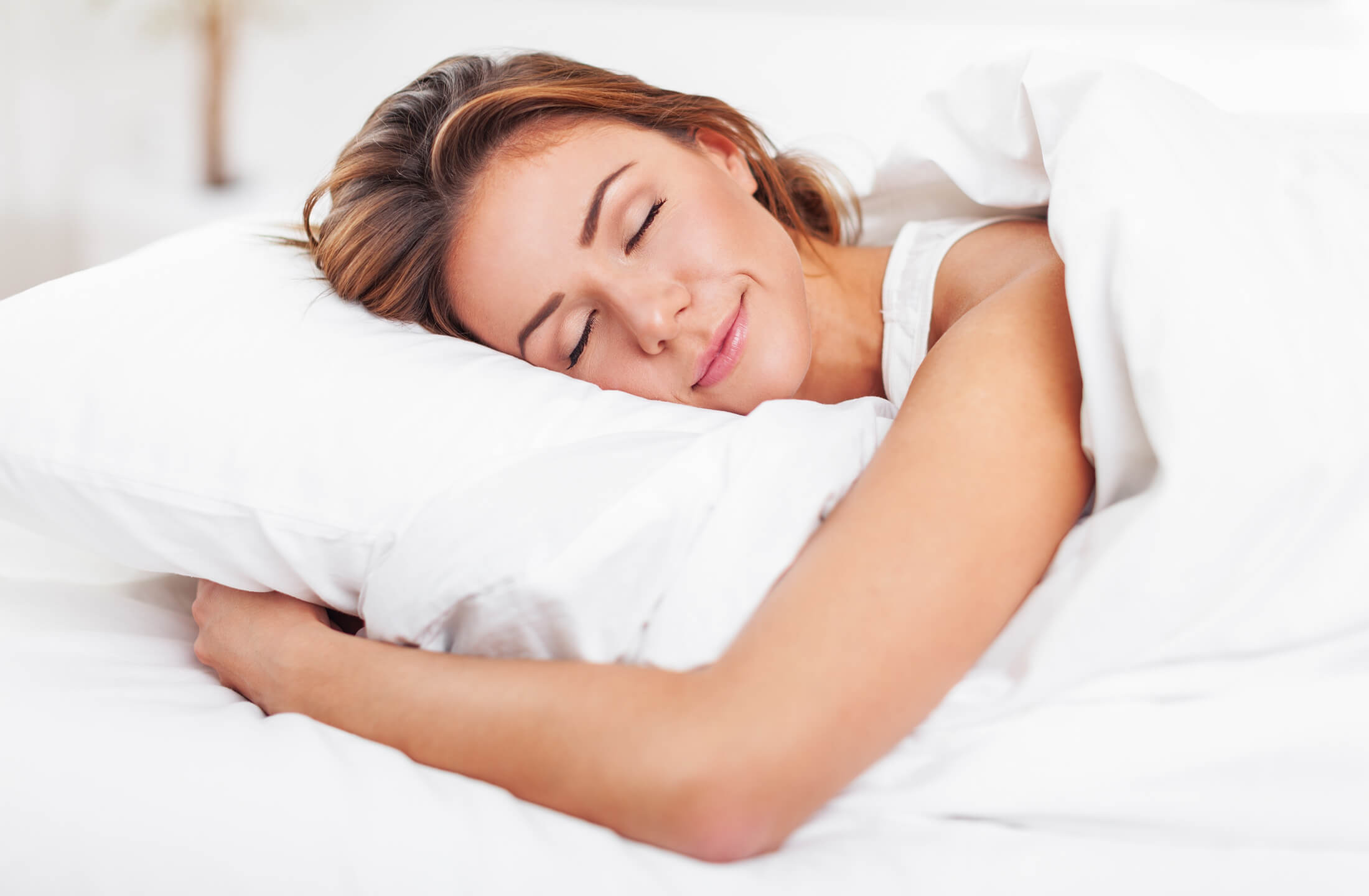
Sleeping with menopause: the sure fire buzzzz
4 minute readWe all know that getting a good night’s sleep is essential to good health. However, many women find sleeping with menopause symptoms quite difficult, both getting to sleep and staying asleep prove hard to navigate.
Here we share tips and hacks to support your sleep during menopause.
Grab some sunlight
Studies show exposure to natural light, particularly at sunrise or sunset, synchronises your circadian clock. This makes it easier to fall asleep.
Tip – Set yourself a goal of 30 minutes of bright outdoor light each day.
Exercise
Exercising is free, easy to do and will help tire you out to bring on sleep. Although the recommendation is to exercise for 30 minutes five times a week, any attempt to increase movement is positive. If you require something gentler, yoga or stretching will still help sleeping during menopause.
Tip – Consider the timing of your exercise; high intensity may increase cortisol and hype you up, so is best for earlier in the day. Slower and calmer exercises like yoga, Pilates and Tai Chi will be more soothing to your nervous system and, therefore, better in the second half of the day.
Mindfulness meditation
Meditation will not only help the mind and body to relax immediately before bed, practising it throughout the day has proven benefits for stress management, assisting in cortisol balance. Just a few minutes a few times a week can make a difference. Contrary to what many people think, meditation is not about “clearing your mind”, it is more about being present and bringing your attention to a point of focus like the breath or sensations in the body. Most of us go back to “thinking” in 0.2 seconds, so use something guided, like a body scan, to get started.
Tip – There are many great mindfulness apps available.
Set the scene for sleep
Your bedroom should be inviting for sleep with a comfortable pillow and mattress. Try to keep it free from electronic devices (phone, tablet, TV). Being just the right temperature (slightly on the cool side) and darkened will also help.
Tip – Consider block out blinds or a face mask to increase darkness.
Ditch the screens
Digital screens impair melatonin signalling. Cease looking at your screen 90 minutes before bed. If this is not possible, switch night mode. If using an alarm in your room, pick an alarm that has red light.
Tip – Set your alarm as late as possible to avoid hitting snooze. This will help with tonight’s sleep.
Reduce stimulants and alcohol
Caffeine (coffee, tea or energy drinks) can disturb sleep, especially after lunchtime. Caffeine reduces adenosine, another important player in regulating sleep rhythm. Science shows us that while alcohol may help some people with sleep induction, it disturbs sleep architecture and disrupts restful sleep in the longer term.
Tip – Keep caffeine and alcohol to a minimum and stop four hours before bedtime.
Diet
Spicy, fatty foods and heavy meals can make sleep difficult. Finish dinner two hours before bed and never go to bed hungry or full.
Tip – Keep meal patterns consistent. Frontload your calories by making breakfast your biggest meal of the day to give your metabolism support.
Put pen to paper to calm a busy mind
If you ruminate on things before bed, this can inhibit sleep. Research published in 2018 showed that making a to-do list and listing as many items as possible for the upcoming day at bedtime allowed people to fall asleep faster.
Tip – Get writing!
A note on melatonin as a medication
Melatonin is available via a prescription in Australia both for adults and children. It improves the ability to get to sleep. While short-term use is OK, there are limited studies on longer-term safety, so speak to your doctor.
Summary
- There are a range of hacks and tips that will assist with sleeping with menopause.
- Try them all, one at a time, to see which works for you.
- Sometimes these need to be tried for a few days to see results.
- Sun in the morning, exercise and cutting back on caffeine as well as adjusting sleep environment are probably the best remedies.
Metluma provides evidence-based health and wellbeing support for women at all stages of life. Learn how to live longer, be healthier, and optimise your health during menopause.